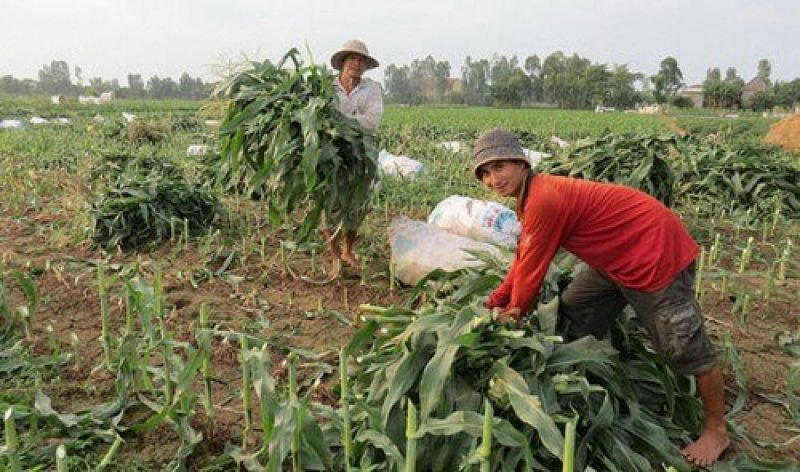This study assessed the farm-level economic and environmental impacts from the use of genetically modified (GM) corn in Vietnam (resistant to Lepidopteran pests of corn and tolerant to the herbicide glyphosate). It was largely based on a farmer survey conducted in 2018–19. The GM varieties out-performed conventional varieties in terms of yield by +30.4% (+15.2% if the yield comparison is with only the nearest performing equivalent conventional varieties) and reduced the cost of production by between US $26.47 per ha and US $31.30 per ha.
For every extra US $1 spent on GM seed relative to conventional seed, farmers gained between an additional US $6.84 and US $12.55 in extra income. The GM maize technology also reduced insecticide and herbicide use. The average amount of herbicide active ingredient applied to the GM crop area was 26% lower (1.66 kg per ha) than the average value for the conventional corn area (2.26 kg/ai per ha) and in terms of the associated environmental impact of the herbicide use, as measured by the Environmental Impact Quotient (EIQ) indicator, it was lower by 36% than the average value applicable to the conventional corn area.
Insecticides were used on a significantly lower GM crop area and, when used, in smaller amounts. The average amount of insecticide applied to the GM corn crop was significantly lower by 78% (0.08 kg/ai per ha) than the average value for the conventional corn area (0.36 kg/ai per ha) and in terms of the associated environmental impact of the insecticide use, as measured by the EIQ indicator, it was also lower by 77% than the average value for conventional corn (14.06 per ha).
…
The evidence identified in the farm survey shows that GM corn adoption in Vietnam has delivered significant socio-economic benefits to the farms that have used the technology. There have also been wider (to society) environmental benefits associated with changes to weed and pest control practices that have reduced the environmental load associated with pesticide use on corn.































